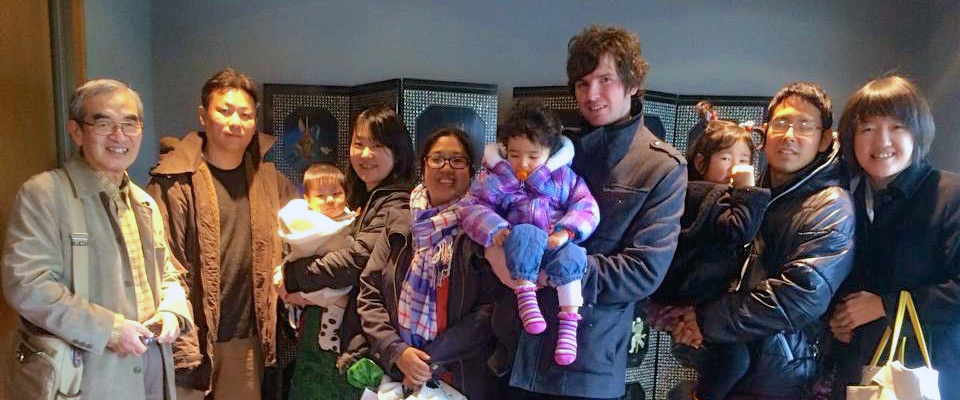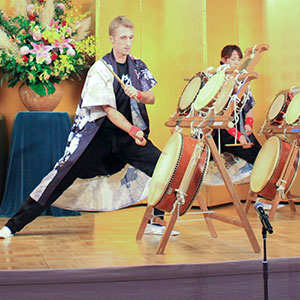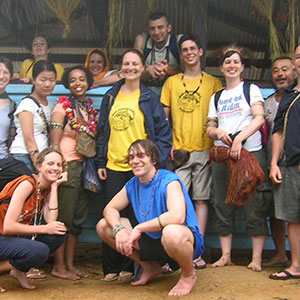Now in its 27th year, the Japan Exchange and Teaching (JET) Programme has welcomed over 55,000 people from 62 countries to deliver grassroots international exchange between Japan and other nations. Eighth in our series, this column features former JETs, both in the UK and Japan, who keep the idea of fostering mutual understanding firmly at heart.
The first time I came to Japan was with my parents when I was two years old. They were in transit to the Philippines and had a one-night stopover in Tokyo.
Later, they told me how impressed they had been by the cleanliness and the outwardly friendly demeanour of the Japanese people. I grew up mesmerised by maiko (apprentice geisha) dancing on the silk screens that my parents purchased during their short trip.
My parents, originally from the Philippines, went to Canada to work. I was born there, but we moved to the US when I was eight years old. Growing up in a bicultural environment had a positive effect on my career path, and I saw the Japan Exchange and Teaching (JET) Programme as a golden opportunity in terms of my future.
My home in Japan was in Tsubata, a town in Ishikawa Prefecture, where I was placed as an assistant language teacher.
While team-teaching English at elementary and junior high schools, I learned how to work spontaneously and enthusiastically, especially when injecting some fun into the classes. The experience also gave me a wonderful insight into the school environment and how important it is for social development in Japanese culture and society.
I stayed for three years, after which I accepted an internship with the Embassy of Canada to Japan. Only available to those Canadians who had been on the JET Programme, this position gave me the opportunity to write a short paper on the possibilities of an Asian economic integration.
After living in Japan, I wanted to experience another country, and so the UK became my new home.
I read a Master of Science in international relations at the University of Aberdeen.
My thesis supervisor introduced me to a theoretical approach to my research based on observing the everyday. This work led me to explore my current PhD thesis topic—“The JET Programme: Generating Soft Power through Memory and the Everyday”—at the University of Sheffield.
As part of my research, I spent 10 months in Tokyo looking into the lives of JET participants and how they promote an image of Japan abroad.
Taking a bottom-up approach, the study considers how memory and nostalgic attachment to a place and space can become the soft power through which an individual may promote the country abroad.
The concept of soft power, coined by Joseph S Nye Jr, of Harvard University, explains how attraction can be a tool that, while imprecise, can be powerfully effective in obtaining preferred long-term, foreign policy outcomes.
I have found, through my research, that time spent on the JET Programme leaves a lasting mark on participants, even those who say it has not.
When someone is at a distance from an experience and its spatial existence, memory is transformed and recollections feel more nostalgic.
In the case of a JET Programme participant who has left the country, suddenly hearing a conversation in Japanese on the street may result in them having the urge to approach the speakers. Likewise, going to a local sushi restaurant may result in memories of how much better the food was in Japan.
Not all the experiences one has gone through on the programme will necessarily have been sugar-coated, but the time spent in Japan is often filled with at least a few first-time, and sometimes perplexing, encounters.
Distinct from taking a holiday abroad, these experiences living and working in Japan will leave a transformative impression on one’s individual narrative.
And despite being individuals, it is through the stories of our experiences that JET Programme participants reach people through face-to-face contact and social media, creating and dispersing to others images of Japan.
While continuing work on my PhD, I join Japan-related events in my spare time. I have now lived in the UK for more than five years, and it is here that I hope to continue my career in research.






